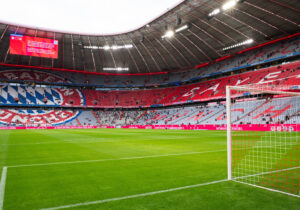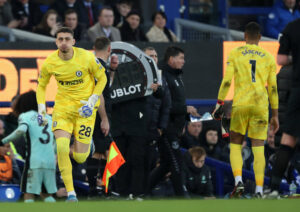Last week, we came close to the death of the English underdog story in football.
The recent emergence of the proposed European Super League is demoralising, to say the least. It reeks of elitism and shows exactly where the power lies in football. It’s not about pride within your community anymore, it’s about being as financially lucrative as possible.
Very few fans wanted it, but thankfully, it appears that cooler heads have prevailed.
It’s times like these when we need to remember what we love about football. And what’s better than an English underdog story? Watching a team defy expectations and stick it to the fat cats at the top of the pyramid is something we can all enjoy. Let’s reminisce on better times.
Top Five English Underdog Cup Runs
5. Wigan Athletic – 2012-13
What a peculiar season this was for the Latics. Their last season in the Premier League to date, it was also one of their most celebrated. An English underdog if ever there was one.
Their campaign in the league was simply a bridge too far for the little Lancashire club. They battled with vigour, but suffered a heartbreaking relegation as the season concluded. But, this was a season to remember for the Tics for one reason – their FA Cup run.
They dispatched of Bournemouth, Macclesfield and Huddersfield, before meeting a roadblock in the form of Everton. The Merseyside club started brighter, but were stunned after Maynor Figueroa powered in a header off a corner.
From here, Everton capitulated. A truly awful backpass by Phil Neville resulted in another goal for Wigan, before Jordi Gomez slotted in a third to seal the victory. In the semis, Wigan would face Millwall, who they beat 2-0.
In the final, against the colossal Manchester City, Wigan were as brave as they were composed. They had nothing to lose and they knew it. They did not sit in and pray for the best, instead they courageously chased the ball and pressed the Citizens whenever they could. City were panicking, exemplified even more so when Pablo Zabaleta was sent off.
A penalty shootout looked inevitable. Then, miraculously, Ben Watson hit a bullet header past Joe Hart to give Wigan their first and only FA Cup win. A bittersweet victory for the Tics with their relegation confirmed, but what a moment!
4. Bradford City – 2012-13
In 2013, Bradford went on an extraordinary League Cup campaign. From the depths of League Two, they rose to the challenge and took out a slew of topflight opposition. The League Cup has been recently known as the tournament of the English underdog, and this year was no anomaly.
First in their sights was the previous entry on this list, Wigan. Next to fall was Arsene Wenger’s Arsenal, who scraped their way to the shootout after a late equaliser. But even then, the Bantams held their nerve and beat the Gunners 3-2.
Bradford drew Aston Villa in the semis. After a 3-1 win in the home tie, Bradford clung on for dear life in the away leg. Goals from Christian Benteke and Andreas Weimann proved insufficient, as a Jamie Hanson header sent Bradford to Wembley.
In the final, the bubble was burst as the Bantams were beaten 5-0 by a ruthless Swansea City team. The dream was over, but in the end it wasn’t about winning. The journey Bradford had been on was what mattered.
They returned to Wembley a couple of months later to win the League Two playoffs. It was a season no one at Valley Parade will ever forget.
3. Wimbledon – 1987-88
Wimbledon FC were always known as a classic example of an English underdog. Always a nightmare for the top sides due to their aggressive, direct style, it all culminated in the 1988 FA Cup.
The Crazy Gang (uncharacteristically) quietly made their way into the fifth round, dispatching of West Brom and Mansfield before shocking Newcastle with a 3-1 away win.
The sixth round saw them oust local rivals Watford before facing another in the semis – Luton Town. Once again, the heart and desire of Wimbledon prevailed. Goals from John Fashanu and Dennis Wise put them in the final, where they would face their greatest challenge to date.
Facing the reigning league champions, Liverpool, at Wembley, seemingly everyone wrote Wimbledon off. With their miniscule resources and small stature within the game, fans anticipated a massacre.
Indeed, Liverpool had the lion’s share of possession early on, but couldn’t find the breakthrough. Late in the first half, a Dennis Wise freekick was met by the head of Lawrie Sanchez, who looped the ball over Bruce Grobbelar and into the goal. Advantage, Crazy Gang.
Undeterred, Liverpool came out all guns blazing in the second half. The Reds were awarded a penalty close to the hour mark, but John Aldridge’s spot kick was saved by captain Dave Beasant.
Liverpool continued to pile on the pressure, but an heroic Wimbledon weathered the storm and emerged victorious. As John Motson put it: “The Crazy Gang have beaten the Culture Club!”
2. Sunderland 1972-73
The 1972-73 was met with little optimism by the then Rokermen. Their third consecutive year in the second division was expected to be as uneventful as the previous two.
At this point, Sunderland had not won a major trophy since 1937 – before the start of World War Two. However, their fortunes would change in the FA Cup.
After dispatching of Notts County and Reading, Sunderland found themselves against Manchester City in the fifth round. A valiant performance at Maine Road ended 2-2, with the replay resulting in a massive win for the Mackems. Optimism was returning to Wearside.
A battling 2-0 win over Luton Town put them in the semis, where they faced First Division giants – Arsenal. Many saw this as a free pass for the London club, and many more were shocked when Sunderland stunned them with a 2-1 win. Somehow, someway, struggling Sunderland suddenly soared their way to Wembley.
What they had done was already remarkable, but the best was yet to come. They faced Don Revie’s Leeds United in the final, one of the most celebrated teams in English football’s long history.
From kick off, it was apparent Sunderland hadn’t turned up to roll over. They flew into tackles, refusing to give Leeds an inch. Leeds began to look worried, even more so when the ball fell to Ian Porterfield who smashed home to give Sunderland the lead.
Porterfield may have scored the winning goal, but goalkeeper Jimmy Montgomery was the star of the show. He kept out a succession of shots, including a close-range effort from Peter Lorimer that he tipped onto the bar.
Leeds could not find a response, and second tier Sunderland had secured an historic FA Cup final victory.
1. Nottingham Forest 1978-79
In 1972, Brian Clough did something truly special with Derby County. In just five years, he took a struggling Second Division club and turned them into the best team in England.
At Nottingham Forest, he did it again – but this time, he turned them into the best team in the world.
After winning the First Division in their first season back in England’s topflight, Forest had their eyes set on European glory.
Their first task was a monumental one. Liverpool stood in their way and Forest were expected to fall at the preliminary hurdle. However, the opposite took place. Forest overcame Liverpool 2-0 at the City Ground, before grinding out a goalless draw to send the scousers packing.
Another massive victory came in the second round, as Forest annihilated AEK Athens 7-2 over two legs. After breezing past Swiss team Grasshopper in the quarters, Forest’s dreams looked to be over after an absolute classic against FC Koln. They drew 3-3 at the City Ground and were given little hope in the away leg.
Stout-hearted as ever, Forest rose to the occasion and took a 1-0 win from the Germans to reach the final. There, they faced another hard-to-beat, plucky side in Malmo FF.
Both teams had more than earned their place in the final, but on the day, it was Forest who were the better team. A mistake by Jan Moller allowed their star man, Trevor Francis, to smash home a winner.
Want to hear something even more amazing than this? Forest won the European Cup again the following year. Truly a fantastic achievement, a real English underdog story, and something we’ll possibly never see again.
Main photo
Embed from Getty Images






